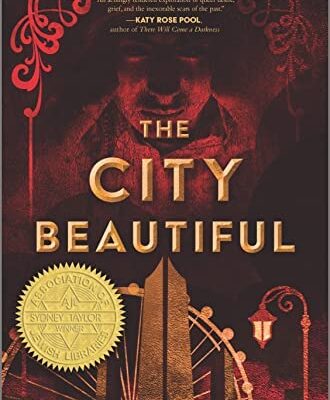‘The City Beautiful’ will leave readers eager for more

The City Beautiful by Aden Polydoros is a YA urban fantasy mystery set in 1893 Chicago following Alter Rosen, a 17-year-old Jewish boy possessed by the dybbuk/spirit of his dead best friend. On his journey to solve his friend’s death, he delves into a world of corruption with the help of a dangerous boy from Alter’s past.
A Dybbuk is a type of spirit from Jewish folklore. Dybbukim are souls of the dead that attach themselves to their living loved ones because they have unfinished business in the world of the living. Jewish representation in YA is mainly made up of historical fiction of the Holocaust, and while those stories are essential and many are well-written, as a Jewish person, it’s dishearting to only see only that aspect of our history talked about. The City Beautiful shines a light on the history of Jews in America with a complex religious character with unique strength, self-determination and vulnerability to him. The fantastical element is mixed in well with the realism of the rest of the book and is written poetically to explore the complexities of grief. The characters have a wide diversity of faith. Alter’s faith is a comfort and source of strength to him and occasionally a source of guilt for him, how his love interest Frankie left the religious aspect of Judaism because of trauma and to assimilate, but he still has pride for his culture, how Alter’s friend Raizel is religious too but feels like tradition confines her to be a housewife when she wants to be a journalist and activist. They all reflect Judaism in a way that Jewish readers can connect to. I feel like I can see myself in all three of the characters, and I feel like I have seen experiences like these characters have in my community time and time again.
Alter Rosen is gay, and his identity is explored in a realistic way regarding his faith and the time period while still having a happy ending. It sends an important message to queer Jewish youth that queerness has always been a part of our history when homophobes in our faith would like to claim queerness is only due to modern assimilation. It’s not a choice and people of any sexuality should be welcomed in any religious community.
The author is planning to write a sequel from the point of view of Alter’s love interest Frankie Portnoy, which I’m eagerly waiting for since Frankie’s character was very well developed, but I feel like his choices at the end of the book could use more explanation because they seemed a little out of the blue, and his backstory was left very vague, making me itch for more details about his life.









You must be logged in to post a comment Login